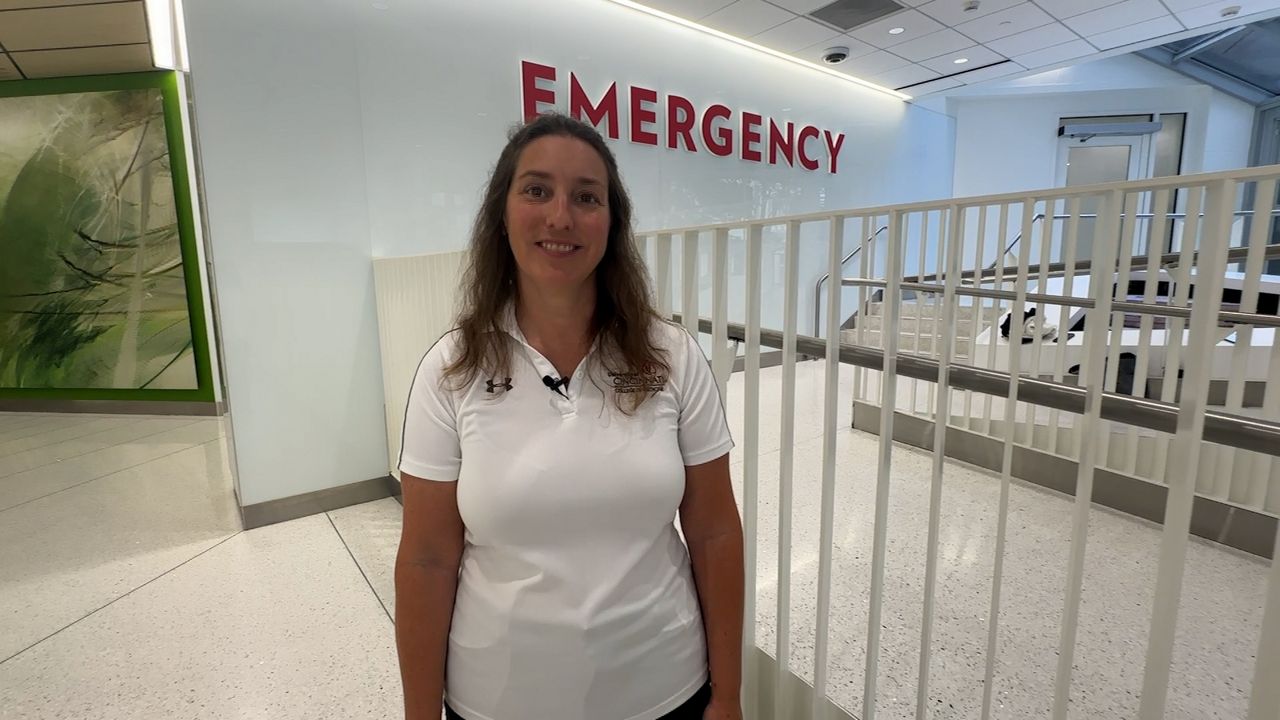CINCINNATI — As the heat continues in Ohio, it’s important to remember how to stay safe outside and how not to end up in the emergency room. Hospitals are reporting an increase in heat related emergencies.
With near record temperatures all week, there’s been a spike at emergency departments with heat-related illnesses, including at the University of Cincinnati Medical Center.
What You Need To Know
- The University of Cincinnati Medical Center is seeing an uptick in emergency room visits with heat-related illnesses
- Symptoms of heat-related illnesses range from vomiting to confusion
- While waits may be longer, UCMC makes sure every patient is immediately triaged by a nurse
- Doctors say to avoid being outside from 10 a.m. to 3 p.m. and limit outdoor activity during the heat wave
In the emergency department, Dr. Caroline Freiermuth has been busy.
“We’ve definitely had a small uptick," Freiermuth said. "People are outside and they’re not paying attention, especially the last couple of days we’ve had a cloud cover which gives you this false sense of security because the sun may not be beating down on you, but yet, it’s still really hot.”

She said there’s been a mix of heat-related illnesses in the ER, which can span from the most extreme of heat stroke to heat exhaustion. While she said young babies and the elderly are at the most risk, she said there is one sign to look out for no matter how vulnerable you are to the heat.
“If you stop sweating, it doesn’t mean that all of a sudden it’s not hot," she said. "It probably just means that you don’t have enough fluids in you to continue to make sweat. And then your body is unable to naturally help you calm down.”
And with an uptick in cases, there may be a longer wait in the emergency room. Freiermuth said if you are waiting, that typically means sicker patients are ahead of you. But the department has protocols to make sure everyone is seen in a timely manner.
“We have a system here where everyone who checks into our emergency department is immediately triaged by a nurse," Freiermuth said. "So somebody with some sort of medical background will see you. They will take your vitals, they will look to see is your heart racing faster than it should? Is your blood pressure maybe a little bit low, indicating that you may be dehydrated. Do you seem confused? And those things play into how you’re triaged and then how quickly you’re seen.”
Freiermuth also said to ease into the heat. Avoid that really hot part of the day from 10 a.m. to 3 p.m. But also be smart about being outside and what you’re doing.



